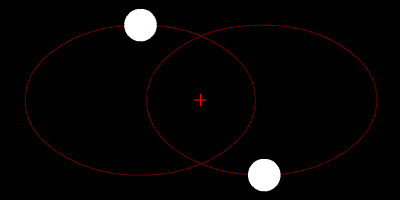Welcome to the 14th Edition of Scientia Pro Publica (Science For The People). This blog carnival collects together the best non-technical science writing that has appeared around the blogosphere in the last few months, to promote and celebrate science, nature or medicine blogs written for the public.
In this edition, we have a glut of posts related to climate change, and an equally large group of posts about the interaction of science and society. Along the way, we will also cover some basic science posts from physics and biology.
Climate Change
October 15th was the Blog Action Day for Climate Change, and as a result we have a number of Scientia posts that raise awareness about climate change, explaining some element of the science behind it.
A good place to start with Climate Change is to explain exactly what it is. Mama Joules sets the ball rolling with a break down of the carbon cycle, climate changes and the effects of global warming, and what we can do to combat it, in easy-to-digest pieces.
Next, we need to know what we can do to help combat global warming. Biotunes asks Paper or Plastic? Specifically, do paper or plastic bags produce more carbon emissions throughout their lifetimes? Some surprising facts: biodegradable plastic produces a lot more CO2 than regular plastic, and you have to reuse a cotton bag 180 times to save carbon over using disposable recycled plastic. On the more ecological side, Dennis DuBay talks about how some species can be used to track the effects of climate change, and how crowd-sourced projects are getting citizen scientists to collect information on some of these species from across North America to build up a detailed view of how climate change is affecting our planet.
Finally, a couple of posts just take the time to marvel at nature, and ask what we can learn from it. Athina Pham gives us a little visual treat, with a photo-essay illustrating the different moods of the Bering Sea. Madhusudan Katti also tries to capture the mood of the sea, as expressed through the first, near-monsoon level storm of the Californian winter. In the wake of this massive natural event, Madhusudan wonders what lessons the history of life on our planet can teach us for our own future in the wake of climate change.
Astrophysics
We have a couple of interesting Astrophysics offerings as well.
Olaf Davis of the Cosmic Web talks about the importance of computer simulations in astrophysics; how seemingly simple problems can be mathematically incredibly complicated, and why computers can help make these problems more tractable. The post contains some beautiful computer-generated images of space, which is always a plus.

On a slightly less pleasant note, Fourier Analyst gets down and gritty with all the bad parts of being an astronaut. With bloating, space-sickness, sleeping disorders, and a host of other maladies, perhaps this isn’t the dream job so many kids think it is?
Biology
We also have a few pure biology entries.
Greg Laden gives us some background on interbreeding between wild and domestic bees, in order to help understand a 17 year study that was recently published on the ecological impact of Africanized bees in South America.
Antibiotic resistances tends to appear rapidly in a range of bacteria. Shuna Gould explains how two important types of resistance work: transport systems, which pump antibiotics out of the cell before they can do any harm, and cellular repair systems, which rapidly fix damage to the cell walls. She also tells us a little about the evolutionary history of these systems, and why they can evolve so quickly.
Science and Society
We have a nice crop of science and society posts this time.
It has long been known that what male facial type a woman finds attractive varies with their menstrual cycle. Eric Michael Johnson has a post up at The Primate Diaries that discusses how this preference cycle changes when a woman is on the pill, and asks whether this effect could lead to relationships becoming unstable when people come off the pill.
Romeo Vitelli traces the birth of the eugenics movement from when Francis Galton coined the term up to the forced sterilizations of the 1920s; with a pit stop to talk about Darwin’s own distaste for eugenics. This is the first in a series of three posts, hopefully we’ll have Part 2 in the next Scientia.
Dr Shock breaks down the various stages at which women drop out of mathematical careers, and how women’s own expectations about their mathematical ability influence their drop-out rate. Dr Shock thinks we need a more targeted approach to getting women into mathematics.
It is always nice to have a bit of genomics in Scientia; there is a very interesting article over at Genomics Law Report. Dan Vorhause, inspired by an odd error by a personal genomics company, not to mention the general lack of trained genetic counselors in the medical profession, considers what can be gained by opening your genome up to the crowd. Can large, open-source and crowd-sourced genomics projects succeed where traditional information guardians have failed?
A post at DC Dispatches says that new fossil finds, the most recent being Ardi, tell interesting and powerful stories about evolution. Yet, each fossil fails to convince the die hard anti-evolutionists in society. Philip says that it is futile to retreat to the sheer force of evidence; to persuade the unpersuaded, we must tell the story of science, blunting the appeal of anti-science
by conveying the wonder of discovery.
On a related note, in 2001, Roger Jovani wrote a paper noting that mites can predict the malting of songbird’s feathers, and make sure they have jumped ship before it falls. Many years later, he discovers that his research is being used to prove the literal truth of the Bible. In this post, he records his reaction.
Next Time, on Scientia Pro Publica
That’s it for this edition of Scientia. The next edition will be hosted by Christie at Observations Of A Nerd on the 2nd of November.
If you have a science, nature or medical post that you are proud of, and it is easily understandable to non-specialists, you can submit to be considered for the next edition of Scientia using this automated submission form. Be sure to include a permanent URL or “permalink”, the post’s title and a short, one line summary of the post. Pseudoscience or advertising will be excluded.
Scientia is also looking for hosts for upcoming editions. If you are interested in hosting Scientia, please read the information in this post.
You can find links to past editions of Scientia Pro Publica over at the Scientia website











Pingback: Science & Technology – the Developments That Shape our Future « WETONG Blog
Pingback: Tweets that mention Scientia Pro Publica #14 « Genetic Inference -- Topsy.com
Pingback: Bee story with a sting in its tail
Pingback: Science Report » Blog Archive » Bee story with a sting in its tail
Pingback: Today’s carnivals [A Blog Around The Clock] » iThinkEducation.net!